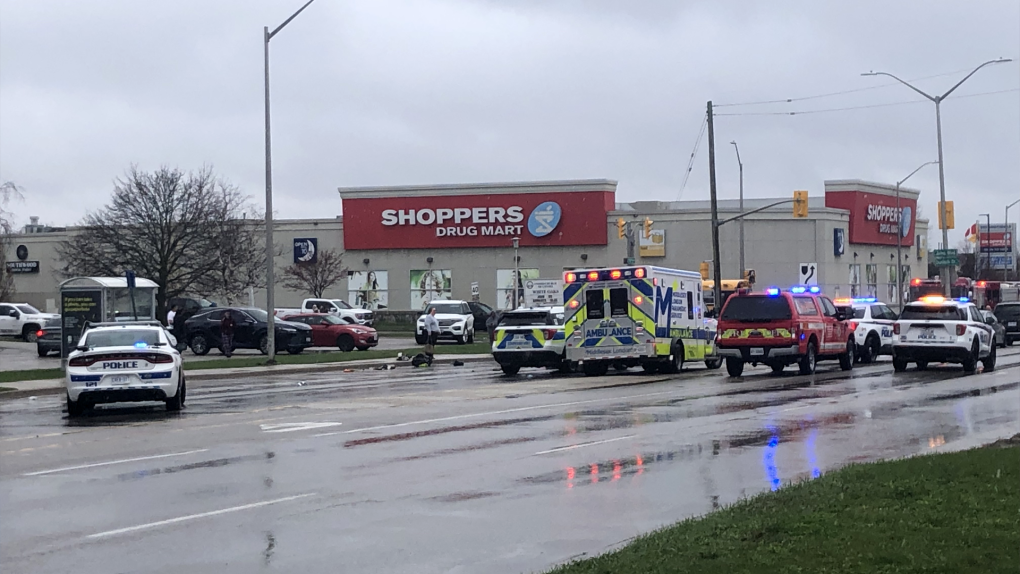Hospitals outside London could end up treating even more Covid patients than at the peak of the pandemic last January, a senior NHS leader has said.
Soaring infection rates in the north of England mean that one NHS trust expects to have 30% more Covid cases next week than it had at the last peak, the chief executive of NHS Providers said.
Chris Hopson fears that hospitals outside the capital will not be as able to cope with the new wave of admissions as those in London. He said this was because they had deeper staffing problems, higher levels of sickness absence, older populations and in some cases worse social care provision.
NHS Providers represents all the 213 NHS trusts of different sorts in England.
Drawing a contrast between the ability of trusts in London and the rest of England to withstand the intense pressures of Omicron, Hopson said in a series of tweets that in the bulk of the country, “overall Covid cases v previous peaks could be much higher”.
NEW thread 5 Jan. SUMMARY. NHS stretched like never before. London still showing lower hospitalisation growth. But growing concerns that the assumption the rest of country will match London pattern may be wrong. Also must recognise impact of pressure on patients & staff. 1/24
— Chris Hopson (@ChrisCEOHopson) January 5, 2022
He added: “London currently [circa] 50% of Jan 2021 peak Covid hospital load. One northern trust already at 70% of Jan 2021 peak and predicting [circa] 130% next week.”
Some trusts outside London have as many as 19% of their staff absent because of Covid, much higher than the 10% off sick or isolating that other NHS organisations have been reporting, he added.
It came as the UK reported a further 179,756 Covid cases on Thursday, with the number of people infected with the Omicron variant continuing to surge.
The latest figures – which reflect infections picked up by testing – bring the UK total for the past seven days to 1,272,131, up 29% on the week before. The true number of infections is estimated to be substantially higher as not all infections are captured by the testing programme.
The figure does not include reinfections for most of the countries in the UK, and reflects cases by date reported, rather than by specimen date.
Data released on Thursday also reveals that in England there are 17,988 Covid patients in hospital, up from 15,659 the day before. A further 231 deaths within 28 days of a positive Covid test were reported in the UK on Thursday.
The data comes as the latest weekly flu and Covid-19 surveillance report from the UK Health Security Agency revealed that Covid case rates rose considerably in England between 27 December 2021 and 2 January 2022, particularly in the north-east and among white ethnic groups.
Hopson said he had spoken to chief executives of more than a dozen trusts outside London over the previous 24 hours.
“They all, unanimously, challenged the assumption that the rest of the country will automatically follow London on the shape and scale of, and ability to ‘cope’ with, pressure,” he said.
“CEOs outside London gave a number of reasons why their local system may be less able to cope with pressures than London has done. Demographics, patterns of infection, hospitalisation and sickness absence will be different.
“So we are likely to see a very varied pattern emerging over next days and weeks, with some trusts finding it easier to ‘cope’ than others. With London trusts at ‘more able to cope’ end? Hence why some trusts now declaring critical incidents – around two dozen now.”
Listing other issues that hamper non-London trusts, he said: “Several saying they’ve started with higher bed occupancy (both Covid and non-Covid) than many London trusts. Multiple workforce issues. Ability to access agency and bank shifts more difficult outside London. Especially outside urban areas.
“Many trusts, for example some offering full set of services across multiple sites, already had workforce gaps pre-Covid so [are] less resilient when absences strike. Geography and distance to travel make staff redeployment across sites more difficult.”
Older populations, the difficulty of redeploying staff to sites where they do not usually work and fewer agency staff living locally affected trusts serving rural areas, he added.
All of the 24 trusts that have declared an “internal critical incident” in recent days have been outside London.
Several operate more than one hospital across a wide area with a small population, such as the Morecambe Bay and United Lincolnshire trusts. Others serve coastal and rural areas, such as those in Blackpool, Plymouth and Dorset. The entire NHS in Norfolk has gone on alert.
Hopson said the NHS across England was “stretched like never before”. He urged politicians and NHS leaders to “openly and clearly acknowledge scale of current pressures and impact on patients and staff”.
Despite their best efforts to maintain normal care, some trusts are having to again postpone non-urgent operations because of the pressure they are under.
That, combined with long waits for ambulances to arrive and to access A&E care, was leading to a “clear, regrettable impact on quality of care for patients”, Hopson added.
https://www.theguardian.com/world/2022/jan/06/hospitals-outside-london-expect-more-covid-patients-than-last-january




